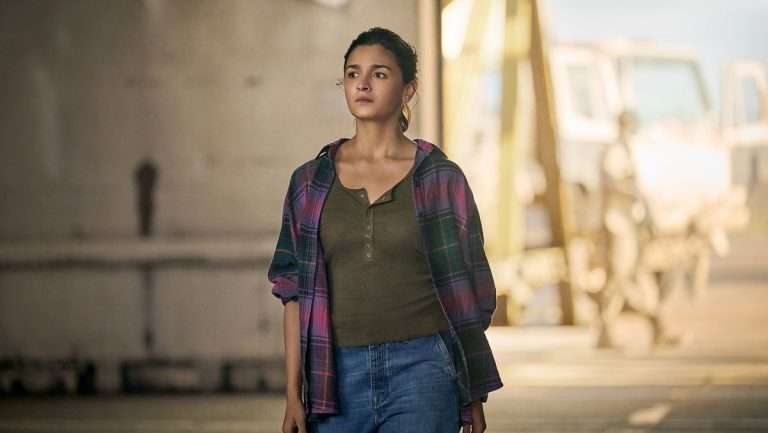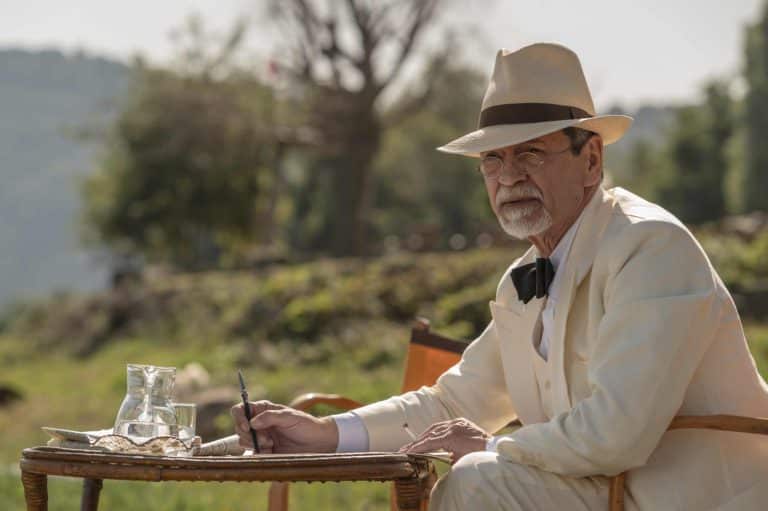There isn’t so much a realization as there is an inevitability to the fact that the ‘mass masala’ cop movie isn’t built for reinvention. The formula is carved in stone: loud hero worship, hyper-masculine posturing, tone-deaf dialogues, and a background score that mistakes volume for intensity. These are not just features but obligations, stamped into the genre like a ritual. However, the rare director can push beyond the theatrics, molding a narrative that finds meaning within the noise. That’s where Rosshan Andrrews scores with “Deva” (2025), his Hindi debut, adapted from his acclaimed Malayalam thriller “Mumbai Police.”
ACP Dev Ambre, or Deva, as he’s fondly called, is a rogue cop in the vein of a Sandeep Reddy Vanga protagonist—minus the moral commentary but with a slightly sharper self-awareness. He operates outside the uniform, treating police brutality as a reflex rather than a last resort. He’s everything Bollywood asks us to celebrate: a beefed-up, smirking lawman with Shahid Kapoor’s star wattage, and he makes his ‘hero entry’ by crashing a wedding dance. The question then arises—why should we care about yet another hyper-aggressive cop molded from the same overused archetype?
Recommended Read: 10 Best Hindi Films of 2024
Because the film cleverly opens with a different image of him: Deva, on his way to meet his senior, has cracked the murder case of his close friend Rahul, a righteous officer who took down an infamous gangster. Before he can disclose the identity of the killer, an accident wipes his memory clean. In an instant, he forgets who he is, what he stands for, and, crucially, what he was about to reveal. The film then becomes the story of a man forced to rediscover himself, but with a new and unfamiliar moral compass. His past self, so reliant on unchecked aggression, is now reduced to muscle memory, and what emerges in its place is a version of him that approaches justice with a sense of responsibility rather than reckless force.
This is Andrrews’ masterstroke—using the amnesia trope to recalibrate the typical ‘angry young man’ fantasy. The filmmakers appropriately thank Amitabh Bachchan in the credits and feature a large wall mural of him as a constant presence in the scenes set in the hero’s locality. Deva doesn’t outright reject the spectacle of police brutality, but it at least reshapes it into something introspective. Of course, it remains largely apolitical despite its setting in a landscape riddled with gangsters, politicians, and corrupt law enforcement. The film is more invested in personal transformation than systemic critique. But within the constraints of the masala genre, it manages to carve a narrative where the protagonist’s evolution feels like a deliberate arc rather than just another excuse for stylized violence.
Similar to Deva: Officer on Duty (2025) Movie Explained
Shahid Kapoor shoulders this transformation with a performance that sells the duality of Deva’s existence. Before the accident, he portrays the character as if Kabir Singh had swapped his medical degree for a police badge—he habitually smokes, brutalizes criminals, and, as the film explicitly states, sleeps with his neighbor’s wife. Post-accident, he carries the hesitance of a man who is physically familiar with his surroundings but spiritually unmoored. It’s an internal tug-of-war that Kapoor nails with the right balance of ferocity and restraint.
Pavail Gulati, as Rohan, plays the ‘good cop’ foil to Deva with sincerity, though the writing limits his impact. Where Deva falters in exploring systemic rot, Gulati’s presence at least provides a counterpoint to the film’s otherwise testosterone-fueled landscape. Pooja Hegde, as Deva’s love interest, does well with the material given to her. Her character isn’t just a romantic accessory but has enough presence to leave an impression, especially in a third-act moment that lands with surprising emotional weight.
Also Read: Deva (2025) Movie Ending Explained: Who Is the Mastermind Behind Rohan’s Murder?
However, none of this elevates Deva beyond the trappings of the genre. The cinematographer and editor deliver polished work, but they never subvert expectations. The film still succumbs to Bollywood’s worst impulses—an unnecessary dance sequence, a jarringly out-of-place climax, and a background score that refuses to let silence speak. And yet, what Andrrews achieves is significant: he infuses just enough of Malayalam cinema’s measured storytelling into a genre that thrives on excess. The result may not break new ground, but it is compelling enough to stand out as a rare mass entertainer—one that doesn’t pander to the audience but respects them enough to offer something genuinely engaging.








